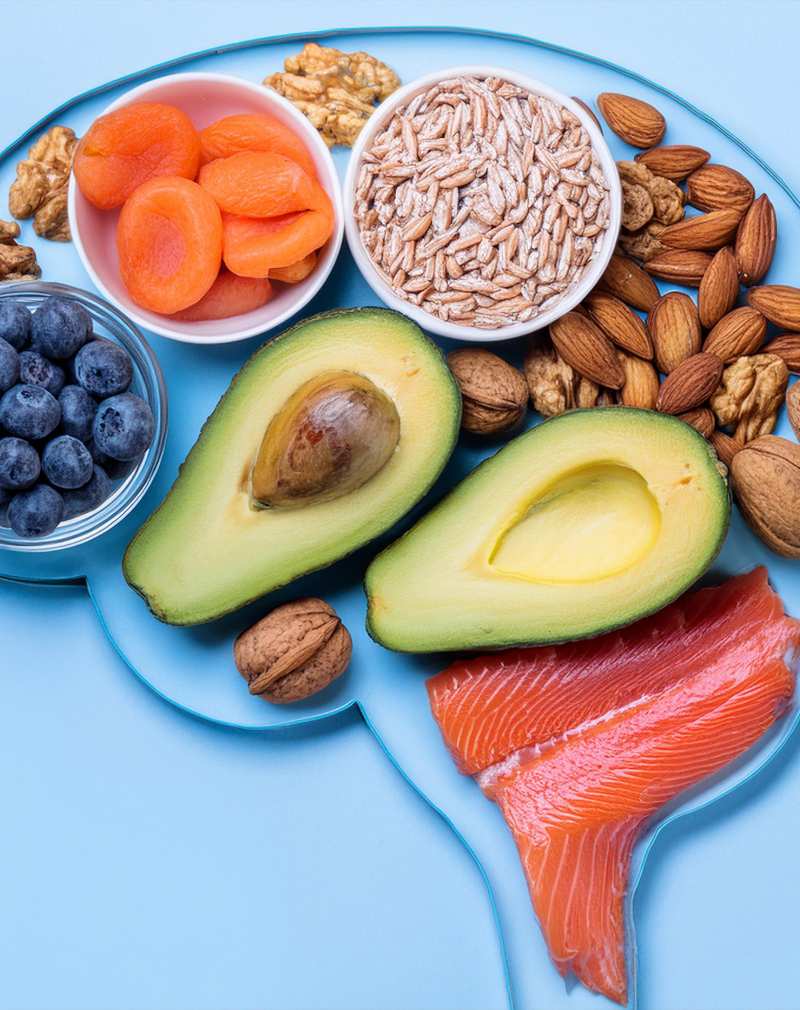Achieving and maintaining a healthy weight can feel like a constant uphill battle for many people. Appetite control often emerges as one of the biggest obstacles to success. Cravings, mindless snacking, and difficulty feeling satisfied can sabotage even the most dedicated efforts.
It’s important to understand that weight management is complex. There’s no single magic solution. Sustainable weight loss and improved health often require a multi-pronged approach that addresses both the physiological and behavioral aspects of eating.
Ms. Hala Tajrine, a clinical dietitian at the American Wellness Center based in Dubai Healthcare City, specializes in helping individuals navigate these complexities. She understands the intricate interplay of hormones, metabolism, food choices, and lifestyle habits that influence weight. Ms. Tajrine believes in empowering her clients with the knowledge and strategies needed for long-term success.
The Role of Medication in Weight Management
For some individuals, medication can be a valuable tool to support their weight loss efforts alongside diet and lifestyle changes. One class of medications, GLP-1 receptor agonists, offer potential benefits by:
- Suppressing Appetite: These medications mimic a naturally occurring hormone called GLP-1, which signals fullness to the brain, helping to reduce hunger and cravings.
- Improving Insulin Response: GLP-1 also plays a role in regulating insulin, a hormone crucial for blood sugar control. This can improve overall metabolic health.
Potential Benefits
When used in conjunction with healthy eating and exercise, weight loss medications may lead to:
- Significant Weight Loss: Studies show greater weight reduction compared to diet and exercise alone.
- Improved Health Markers: Potential improvements in blood pressure, cholesterol, and blood sugar levels, reducing the risk of chronic diseases.
Important Considerations
- Not for Everyone: Medication may not be suitable for all individuals. Consulting an endocrinologist is crucial to determine if this option is appropriate and safe based on your medical history and specific needs.
- Potential Side Effects: Common side effects may include nausea, vomiting, or digestive issues.
- A Tool, Not a Magic Solution: Weight loss medication is most effective when combined with sustainable dietary changes and lifestyle modifications.
Guidance for Medication Use: Those with a BMI of 30 or higher (obesity) or a BMI of 27 or higher with weight-related health conditions may be eligible for medication under the guidance of an endocrinologist. For proper guidance and supervision you can visit our wonderfully equipped, full of qualified clinicians Nutrition Department at American Wellness Centre based in Dubai Healthcare City.
The Power of Protein for Appetite Control
Protein packs a powerful punch when it comes to managing hunger and feeling satisfied. Unlike simple carbohydrates that cause rapid spikes and dips in blood sugar, protein helps stabilize blood sugar levels. This prevents energy crashes that can trigger cravings and overeating.
Protein also influences your body’s hunger hormones. It stimulates the release of hormones like leptin, which signals fullness to the brain, and helps suppress ghrelin, the “hunger hormone.” Additionally, protein takes longer to digest than carbohydrates, further contributing to a feeling of fullness that can last for hours.
To reap the benefits of protein for appetite control, focus on incorporating a variety of protein-rich foods into your diet. Excellent sources include lean meats (chicken, turkey), fish, eggs, dairy products (yogurt, cheese), lentils, beans, chickpeas, tofu, nuts, and seeds.
Spreading your protein intake evenly throughout the day is crucial. Start your day with a protein-packed breakfast to prevent mid-morning cravings. Incorporate protein-rich snacks like yogurt with nuts, a hard-boiled egg, or hummus with vegetables to keep hunger at bay between meals. Finally, ensure each meal contains a substantial protein portion to support satiety and help you eat smaller portions overall. Qualified Nutritionists at American Wellness Centre in Dubai Healthcare City can help you out in cases like these.
Mindful Eating and Appetite Awareness
Developing a mindful relationship with food is essential for managing appetite and sustainable weight loss. Too often, we eat on autopilot without truly being aware of our hunger levels or the reasons behind our food choices.
- True Hunger vs. Emotional Eating: Learning to differentiate between physical hunger and emotional eating is key. Physical hunger typically manifests as a gradual feeling in the stomach, perhaps accompanied by a rumbling sound or lightheadedness. Emotional eating, on the other hand, can be sudden, intense, and often seeks specific foods for comfort.
- Slow Down and Eliminate Distractions: Eating slowly and without distractions allows you to tune in to your body’s satiety signals. Put away your phone, turn off the TV, and focus on the taste, texture, and aroma of your food.
Strategies for Managing Cravings
- Hydration: Often, thirst can be mistaken for hunger. Drink a glass of water before reaching for a snack.
- Mindful Distraction: Take a short walk, engage in a few minutes of mindful breathing, or listen to upbeat music to shift your focus away from cravings.
- Plan for Occasional Treats: Deprivation can backfire. Allowing yourself occasional, planned treats can prevent binges and promote a healthier mindset.
“Obesity 360: Navigating Weight Management Strategies,” led by Ms. Hala Tajrine, a distinguished clinical dietitian from the American Wellness Center in Dubai Healthcare City. Throughout the webinar, Ms. Tajrine offered an in-depth exploration into effective weight management techniques, underscoring the crucial role of appetite understanding and control. Participants were equipped with strategies for mindful eating, recognizing hunger cues, and selecting nutritious food options, fostering a path towards a sustainable and healthy relationship with food. Ms. Tajrine also navigated the complexities of integrating medications with dietary and behavioral modifications, providing a holistic view on managing weight effectively. This comprehensive approach highlighted by Ms. Tajrine not only demystified weight management but also empowered attendees with the knowledge to embark on a healthier lifestyle journey.
Beyond Diet: Lifestyle Factors for Weight Loss
While diet plays a central role in weight management, it’s important not to underestimate the power of lifestyle habits. Here’s how they fit into the equation:
- The Importance of Exercise: Regular physical activity not only burns calories, but it also helps boost your metabolism – the rate at which your body burns calories at rest. Even moderate exercise can make a significant difference. Aim for at least 30 minutes of moderate-intensity exercise most days of the week.
- Sleep: Your Weight Loss Ally: When you’re sleep-deprived, levels of the hunger hormone ghrelin increase, while the satiety hormone leptin decreases. This can lead to increased appetite and cravings for unhealthy foods. Prioritize getting 7-8 hours of quality sleep each night.
- Managing Stress: Chronic stress can contribute to weight gain by elevating cortisol levels, which can increase appetite and promote fat storage. Develop healthy stress management techniques such as yoga, meditation, or spending time in nature.
Ready to take control of your weight and health? Schedule a consultation with our expert dietitians at the American Wellness Center in Dubai Healthcare City. We’ll create a personalized nutrition plan to help you reach your goals and feel your best! Give us a call today!



